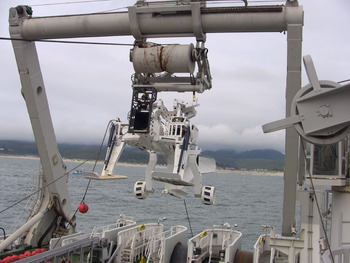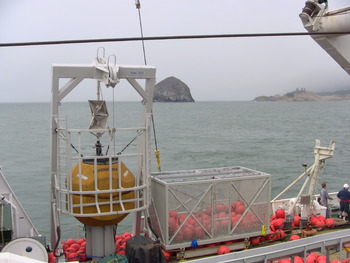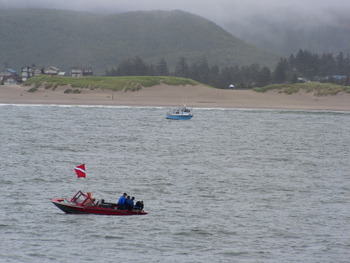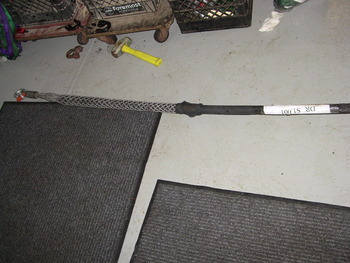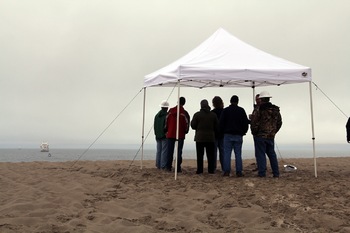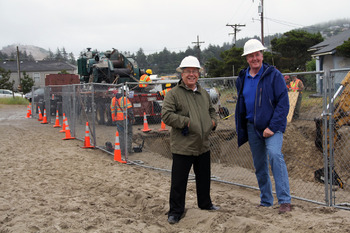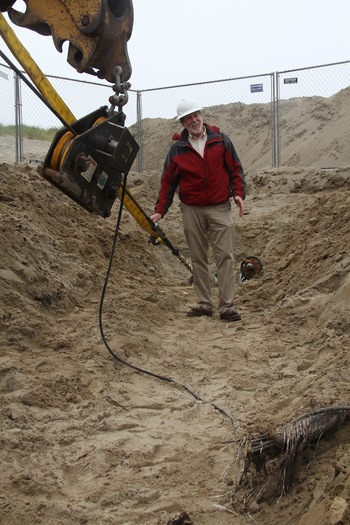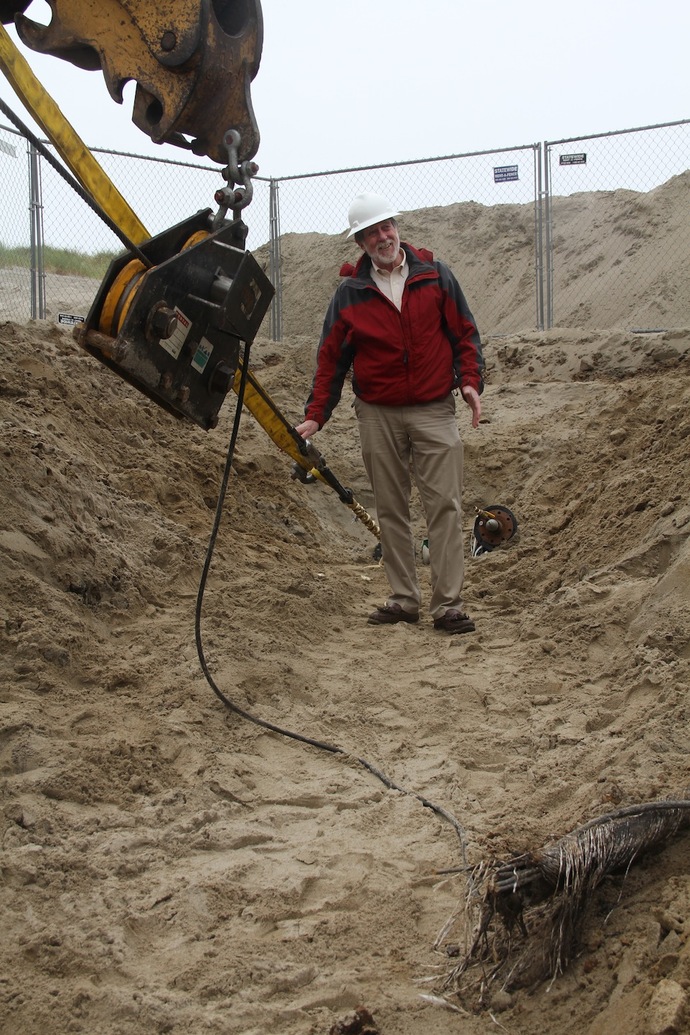The horn on the backhoe blasted and someone shouted "The cable has landed!" With that, the southern segment of the OOI cable emerged at the shore end of the conduit pipe at 11:15 am on Tuesday, July 12, in Pacific City, Oregon, and ocean science history was made.
The day had begun several hours earlier at first light of day, tinged by a persistent drizzle and cloaked in low gray clouds. Several of us from the University of Washinton OOI team were there, including our Chief Operating Officer, Pete Barletto, and Associate Director for Operations, Michael Mulvihill. Kerry Beck from the Consortium for Ocean Leadership office in DC and Director of Communications for OOI was also there, happily enduring the rain for the sake of the moment. The occasional beachgoer strolled by and asked what was going on.
From the top of the dune behind the beach manhole where the cable would emerge, we could see the TE SubCom cable ship Dependable sitting about a mile offshore. Divers went into the water and down to the end of the pipe, where they fought currents to attach the end of the undersea cable from the ship to tape that was connected to a 3/8" wire farther up the pipe to the 5/8" wire on a drum on a winch onshore.
Because the ship was so close, we were able to talk and text by cell phone with our colleague, Cecile Durand, OOI Marine Maintenance Manager at the UW, who is on the Dependable for the two months of cable installation work. We kept each other updated about what was happening at our respective ends of the cable, excited that this moment had finally arrived. The TE SubCom shore crew was welcoming and explained the procedures as we watched them monitor the tension on the wire, use the backhoe to adjust the angle of the cable going onto the drum on the winch, and then guide the cable onto the drum.
At about 11 am, the Director of the OOI Regional Cabled Network, John Delaney, arrived in the nick of time from a meeting at Oregon State in Corvallis. Delaney has devoted the past 20 years of his professional life to development of this cabled observatory in the northeast Pacific. We stood and watched the swivel at the end of the undersea cable emerge from the end of the conduit pipe. The horn sounded, and the cable was landed for the first U.S. regional cabled ocean observatory. Although the TE SubCom crew lands cables routinely, for those of us involved with the project it was a thrilling and emotional moment to achieve this milestone.
The second cable, the one for the northern segment that will reach 310 miles offshore to Axial Seamount, is scheduled to be landed on July 14 using the same professional and expert operations on display today by the TE SubCom crew.
--Nancy Penrose, Communications Coordinator, and Allison Fundis, Education and Public Engagement Liaison, University of Washington, on shore in Pacific City, Oregon.
